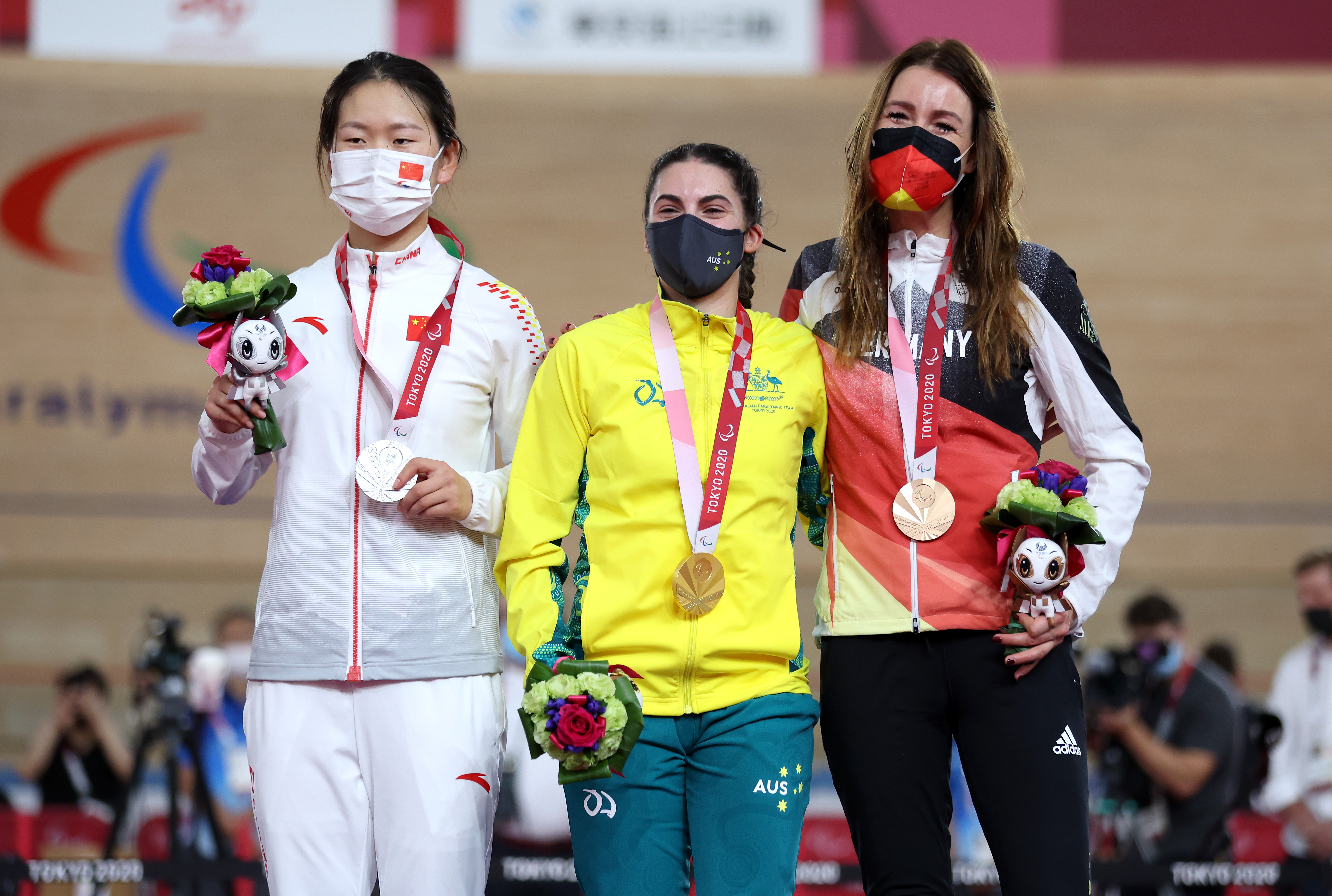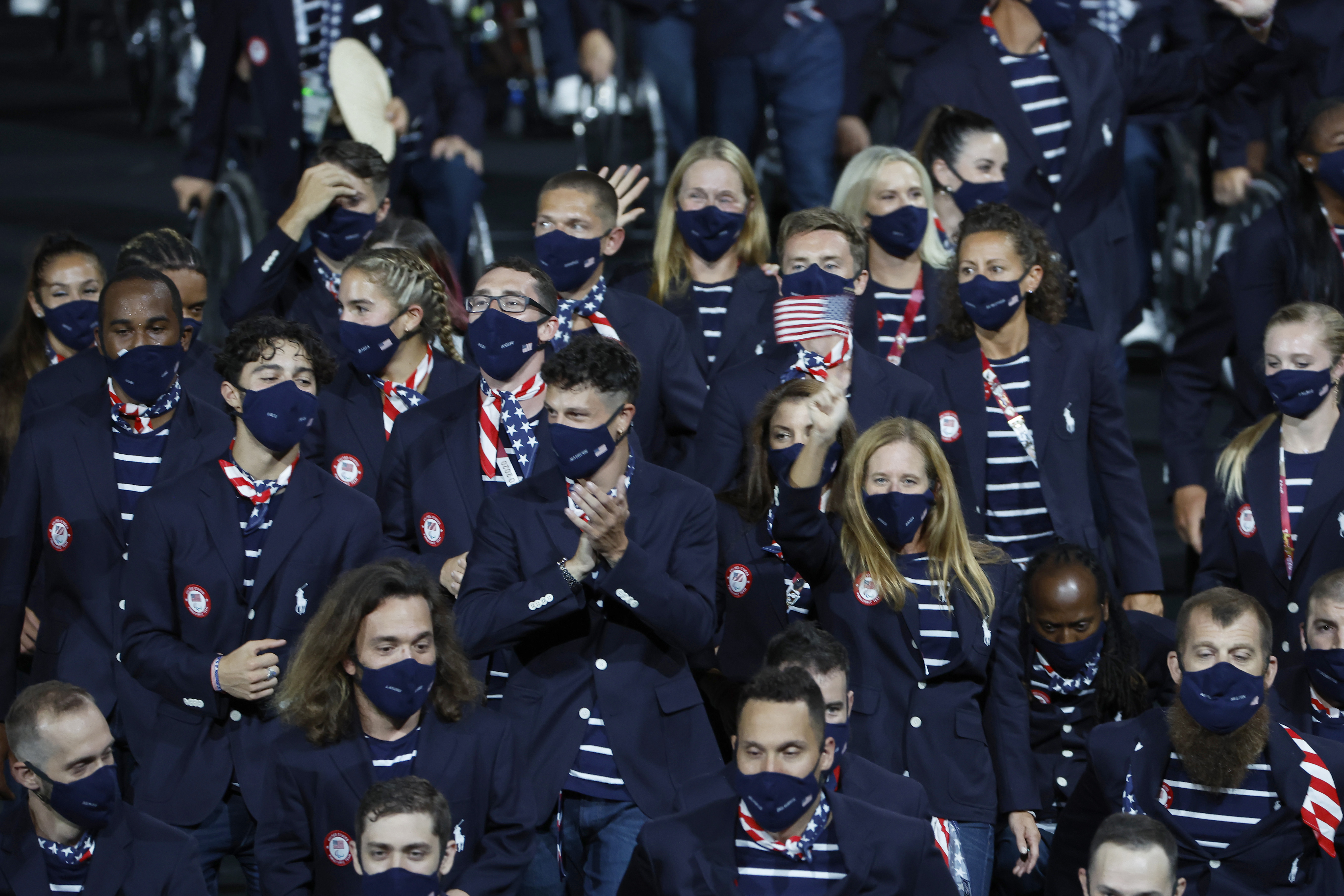The Opening Ceremony of the Tokyo Olympics featured the lighting of the Olympic cauldron at the Tokyo Olympic Stadium by tennis star Naomi Osaka.
The Olympic cauldron was lit by a torch, but the torch’s flame isn’t simply produced by a lighter prior to the event. The Olympic flame travels on a months-long journey where it’s carried by thousands, during what’s called the Olympic torch relay, before reaching the Opening Ceremony.
From the torch relay to who gets to light the cauldron and more, here is everything you need to know about the Olympic flame.
Where does the Olympic torch start?
A burning flame has been part of the modern Olympics since 1928, but the tradition goes all the way back to the ancient Games in Greece. So the Olympic flame lighting ceremony, which was first incorporated along with the torch relay for the 1936 Berlin Games, is held at the ancient Olympic site of Olympia in Greece.
At the ceremony, a parabolic mirror and the sun’s rays are used to ignite the Olympic flame. The flame is then passed on to the first torchbearer of the Olympic torch relay.
Tokyo Olympics
Watch all the action from the Tokyo Olympics live on NBC
This is usually done months in advance of the Games, but the flame for the Tokyo Olympics actually was produced over a year ago. The lighting ceremony was held on March 12, 2020, shortly before the Games were officially postponed to 2021 due to the COVID-19 pandemic. You can watch it here.
What does the Olympic torch look like?
The top of the Olympic torch for the 2020 Games resembles a Japanese cherry blossom with five petal-shaped pieces where flames come out of.
The torch is made out of aluminum, with some of it being recycled material from the temporary housing that was built following the 2011 earthquake and tsunami in Japan.
How does the Olympic torch relay work?
The torch that first receives the Olympic flame won’t be the same one that’s used to light the Olympic cauldron. The flame is transferred from one torch to another during the relay.
The first torchbearer, traditionally a Greek athlete, attends the lighting ceremony to receive the flame and then delivers it to the second torchbearer at the nearby monument for Baron Pierre de Coubertin, who founded the modern Games.
Has the Olympic torch ever gone out?
You may be wondering what happens if the flame goes out. Believe it or not, it’s actually rare for that to happen. But lanterns containing flames from the lighting ceremony are available during the relay if needed.
Who was the first woman to be Olympic torchbearer?
A woman was the first torchbearer for the first time ever last year when Anna Korakaki, a Greek shooting gold medalist in the 2016 Rio Games, kicked off the Tokyo Olympic torch relay. Korakaki passed off the flame to Mizuki Noguchi, a Japanese marathon runner who captured gold in the 2004 Olympics.
How has COVID-19 impacted the Olympic torch relay?
The relay would normally then continue throughout Greece following the lighting ceremony, but on March 13 the country canceled the rest of its relay due to COVID-19 concerns. On March 20, the flame arrived in Japan via airplane. The Japan part of the relay was also suspended following the postponement of the Tokyo Games, and the flame was put on display at the Tokyo Olympic Museum in September.
On March 26, 2021, the 121-day-long Japan leg of the relay got underway in Fukushima Prefecture, where members of Japan’s 2011 World-Cup winning women’s soccer team were the first to carry the flame.
The flame journeyed to each of Japan’s 47 prefectures leading up to the Games, but there were some cancellations and detours along the way due to COVID-19. For instance, nearly the entire Tokyo portion of the relay was moved off of public streets.
Who gets to light the Olympic cauldron?
The final torchbearer, who lights the Olympic cauldron during the Opening Ceremony, is typically a famous athlete, or athletes, from the host country.
But it isn’t always someone who is well-known or even an Olympian for that matter. At the 2012 London Games, seven teenage athletes were nominated by legendary British Olympians to light the cauldron.
The identity of the cauldron lighter is kept under wraps until the Opening Ceremony, so we will have to wait until July 23 to find out who gets the honor at the Tokyo Olympics.
Who are notable Olympic cauldron lighters?
Enriqueta Basilio, a Mexican sprinter, became the first woman to light the Olympic cauldron at the 1968 Mexico City Olympics.
History was made at the 1984 Los Angeles Games as well when Rafer Johnson became the first African American to light the cauldron. Johnson, a gold medalist in the decathlon, was also the first African American to carry the United States flag during an Opening Ceremony, doing so at the 1960 Games in Rome.
Antonio Rebello had one of the more thrilling lightings at the 1992 Olympics in Barcelona. The three-time Paralympic medalist in archery shot a flaming arrow at the cauldron from nearly 200 feet away. It appeared to be a direct hit as the cauldron was set aflame, but years later it was revealed Rebello was told to shoot the arrow outside the stadium as a precaution. The cauldron was lit by remote control as the arrow flew over.
Three-time world heavyweight champion and global icon Muhammad Ali was the final torchbearer for the 1996 Olympics. Ali lighting the cauldron in Atlanta, over a decade after being diagnosed with Parkinson's disease, is regarded as one of the greatest Olympic moments of all time.




